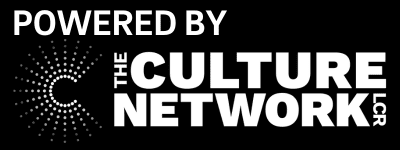By Radka Hostašová

An important part of a practicing artist’s life is meeting with other creatives and interacting with audiences. In the case of musicians, their meeting points are frequently concert halls or other venues for rehearsals and public performances. A similar situation applies to dancers, actors or singers, whose gatherings are more than essential to collaborate on collective shows. But how about the ones who focus on visual arts and handcraft? The work of those artists is sometimes produced from home-based studios, commonly made up of an overloaded table in a tiny corner of the house. It could be said that these kind of working conditions might add a bit of loneliness to the creative process.
However, along with other areas of art and culture, Liverpool values the contribution of local artists, makers and creators, by providing them with dedicated spaces to create, meet each other, collaborate and promote their work. And there is no doubt that Make CIC proudly stands amongst these creative spaces. Established in 2012, Make has become one of the popular community hubs for artists and local businesses, integrating various fields, such as drawing, painting, ceramics, printmaking, embroidery, and woodcraft.
Established in 2012, Make Liverpool has come a long way having expanded their base in the Baltic Triangle with two more venues – one located in the North Docks and the latest hub opened in Hamilton Square, Wirral. Another milestone for the growth of the organisation will be marked this year with the opening of a new creative space in Huyton Village, dedicated to connecting creatives in the Knowsley area.
Looking at the concept of the centre, Make’s programme stands on three main pillars – create, connect and educate. Firstly, while using the extensive workspace of all three current venues, Make accommodates more than thirty resident artists, who can use the space to create as well as store and exhibit their work. Hiring a studio is a great solution for makers whose work involves the use of heavier equipment and requires a more industrial setting. Yet, it is also an affordable way for up and coming artists to take those first steps in their career and gain more confidence while running their own studio.
Giving an opportunity to local artists goes hand in hand with supporting the growth of independent businesses. With its community-focused plan, Make hosts regular meetings to provide guidance to less experienced makers and help implement their visions. Besides the mentoring sessions, the organisation has recently listed networking events to encourage the community members to teach, learn and exchange skills. After all, networking is one of the keys to establishing a successful business.
And finally, a considerable part of the programme consists of a variety of workshops and courses, such as Drink and Draw, Introduction to Woodwork, Mindful Macramé, or Green Fingers – teaching the basics of plant care. It is important to note that creative classes are open to the maker’s community as well as to the public. Everyone thinking of kicking off a creative hobby, from traditional crafts to digital art, can join the classes. The warm and welcoming environment of Make intends to break the barriers of those who hesitate to start a creative journey and ensures their wellbeing.
The Make venues host many more events on a regular basis, as well as hosting or one-off and pop-up events. Their Summer and Winter Arkade Markets provide a boost for the shop-small economy in the Liverpool City Region by bringing talented local makers to present and sell their products. Sustainability and independence stand at the forefront of the organisation’s strategy. With their constantly-developing mission to support the maker’s scene, Make Liverpool holds a significant role in Liverpool’s art and cultural field.
To find out more about Make visit https://makecic.org/

